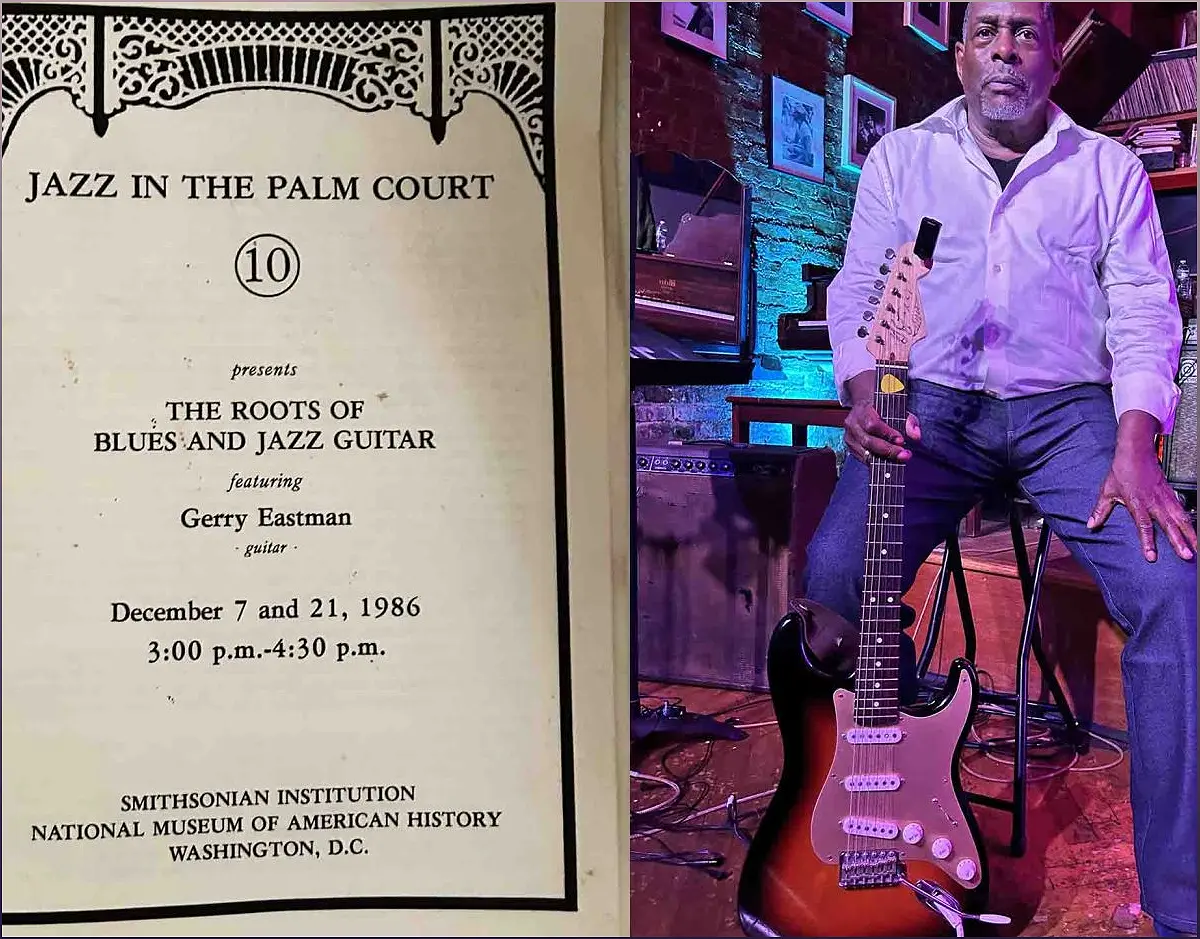Step into the world of jazzman Gerry Eastman, a virtuoso electric guitarist and composer who continues to captivate audiences at the Williamsburg Music Center. Explore the rich history of this Black-owned jazz club, the influence of Gerry's brother Julius Eastman, and the unique blend of genres that define Gerry's music. Join us on a soulful journey of music, resilience, and the enduring legacy of these remarkable artists.
The Williamsburg Music Center: A Historic Haven for Jazz
Explore the rich history of the Williamsburg Music Center, the only Black-owned jazz club in the neighborhood, and its significance in the jazz scene.
Step into the Williamsburg Music Center, a jazz club that has been owned and operated by jazzman Gerry Eastman since 1981. Located in the vibrant neighborhood of Williamsburg, Brooklyn, this historic venue stands as a testament to the rich cultural heritage of jazz music.
With its walls adorned with historical artifacts and a sign that proudly proclaims 'Attention: Highly Futuristic Music In There,' the Williamsburg Music Center has become a haven for jazz enthusiasts. It serves as a vital space for Black artists, filling a void in the predominantly white jazz scene of New York City.
The Musical Legacy of Gerry and Julius Eastman
Discover the profound influence of Julius Eastman on Gerry Eastman's music and the challenges faced by these talented brothers in the music industry.
Gerry Eastman's musical journey is deeply intertwined with that of his older brother, Julius Eastman. Both musicians worked together in Buffalo at the Tralfamadore Cafe, where they collaborated and cross-pollinated musical styles.
Julius, a musician and composer, gained recognition in recent years for his minimalist and provocative pieces. As a Black and gay artist in the classical music world, he faced numerous challenges and sadly died in obscurity. However, there has been a revival of Julius's music, with ensembles reconstructing and recording his works.
The influence of Julius on Gerry's music led him to explore more experimental and free-form compositions. Gerry's music is a unique blend of spiritual and cosmic jazz, romanticism, and gospel. His soulful performances continue to captivate audiences, showcasing the enduring legacy of these talented brothers.
Gerry Eastman: A Musical Upbringing and Collaborations
Delve into Gerry Eastman's musical upbringing, his collaborations with his brother Julius, and the unique style that defines his music.
Gerry Eastman's musical journey began with a rich upbringing surrounded by music. Growing up in a musical family, he was exposed to various genres and instruments from an early age.
His collaborations with his brother Julius at the Tralfamadore Cafe in Buffalo allowed them to experiment and fuse different musical styles. Julius's influence pushed Gerry to explore more experimental and free-form compositions, shaping his unique musical style.
Gerry's music combines elements of spiritual and cosmic jazz, romanticism, and gospel. His virtuoso electric guitar skills and soulful performances have garnered him acclaim and a dedicated fanbase.
The Williamsburg Music Center: A Safe Haven for Music
Learn about the mission of the Williamsburg Music Center in providing a safe and welcoming environment for musicians and audiences alike.
The Williamsburg Music Center, founded by Gerry Eastman, aims to create a safe and inclusive space for people to enjoy intelligent music performed by accomplished musicians. It serves as a sanctuary for both established and emerging artists, fostering creativity and collaboration.
As the only Black-owned jazz club in the neighborhood, the Williamsburg Music Center plays a crucial role in promoting diversity and representation in the jazz scene. Gerry Eastman's refusal to sell the club reflects his commitment to providing a vital space for Black artists.
Gerry believes that music is a universal language that transcends barriers and compares it to food, stating that it is something that almost every human being engages with daily. The Williamsburg Music Center stands as a testament to the power of music to bring people together and create a sense of community.

